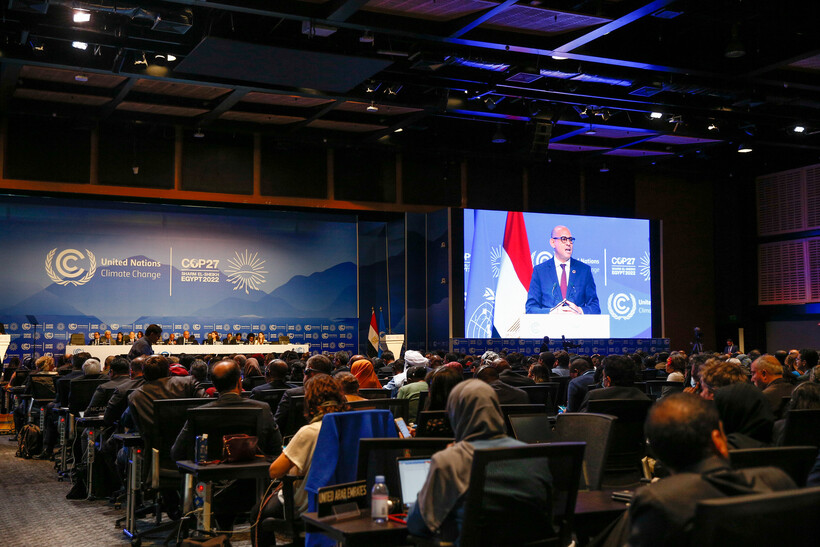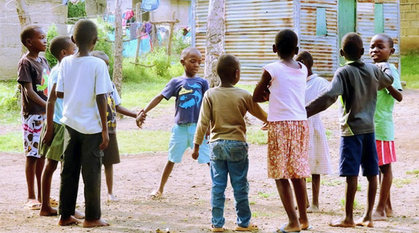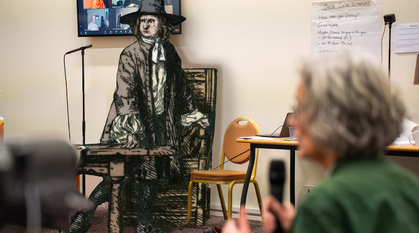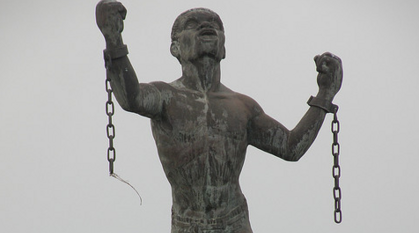Justice, peace and the need for action at COP27
Paul Parker reflects on the COP27 process as the UN climate talks begin in Egypt.

This week, diplomats, negotiators and leaders from around the world are again gathering for UN climate talks. COP27 is billed as the summit where the agreements reached at last year's Conference of the Parties (COP) to the United Nations Framework Convention on Climate Change (UNFCCC) will finally be implemented.
This time last year, I was one of many thousands of people to converge on Glasgow for COP26, joining many other Quakers, people of all faiths and none, activists and groups to put a warm jacket around the COP and its participants. Together, civil society surrounded the summit site with goodwill, prayer, protest and pressure, united in willing those within to unite in agreements that would protect our world from catastrophic climate change and limit temperature rises.
We called on them to ensure people's ways of life could adapt, and to recompense those for whom all this is already too late, whose lives and livelihoods are already being destroyed by the climate impacts we have already put irreversibly in train. We asked for finance for loss and damage.
A flawed process
The UNFCCC and its annual COPs are a flawed process. There are serious power imbalances between the participating nations, many of whom are in hock to fossil fuel extractors and other polluting industries. It can be too expensive for poorer nations to be fully represented, and near-impossible for their citizens to attend as part of the civil society presence.
Civil society is denied access to much of the summit, and the voices of minorities, women, indigenous peoples and the youth are only faintly to be heard. Rich, polluting nations are difficult to hold to account, and can easily manipulate the agenda, the outcomes, and the implementation timetables for any agreements reached.
This COP, held in Egypt – a country with a low tolerance for protest, democratic engagement or dissent – will not benefit from that encirclement of goodwill, prayer, protest and pressure that we were able to provide in Glasgow. The view across the Red Sea to Saudi Arabia, and beyond it the oil-producing nations of the Gulf may not inspire delegates to think about the real alternatives to business as usual.
And the stakes are even higher this year than last.
Coming together with shared intentions
Despite these flaws, the UN climate talks are the best chance we have to turn this ship around. They are the one place where the nations of the world come together, with a shared intention of reaching agreement.
The COPs are our annual opportunity to hold our governments to account, to scrutinise their promises and highlight the gaps between pledge and performance. They are a time for poorer nations – those which have done the least to cause this problem – to make their voices heard and put justice for their peoples on the agenda.
Working for justice
The consequences of not reaching agreement do not bear thinking about. Billions of people, on a warming planet, competing for ever-scarcer resources, failing to share unpolluted water, fighting for the fertile land, the freshest air – we know already, from the lessons of history and our experience of the recent Covid-19 pandemic, that this would not end well.
Justice does not come effortlessly to us, and the multilateral processes by which the world seeks to apportion resources fairly are hard-won, and hard work. If the world is to have a chance of peace, this work must be done.
Holding in the Light
This week more than ever I am grateful for my colleagues at the Quaker United Nations Office, for the many other people of good faith inside and outside the COP site at Sharm-el-Sheikh, the partner organisations which work tirelessly to find points of agreement, and keep the points of disagreement in such sharp focus, and the activists who maintain the pressure, often at high personal cost.
I am holding them, and the decision-makers in Egypt in the Light, knowing that their decisions are not as straightforward as they may look from here. I stand with all those I met in Glasgow in keeping that warm jacket of goodwill, prayer, protest and pressure in place around this COP too – even if from afar. The world's future depends on it.


